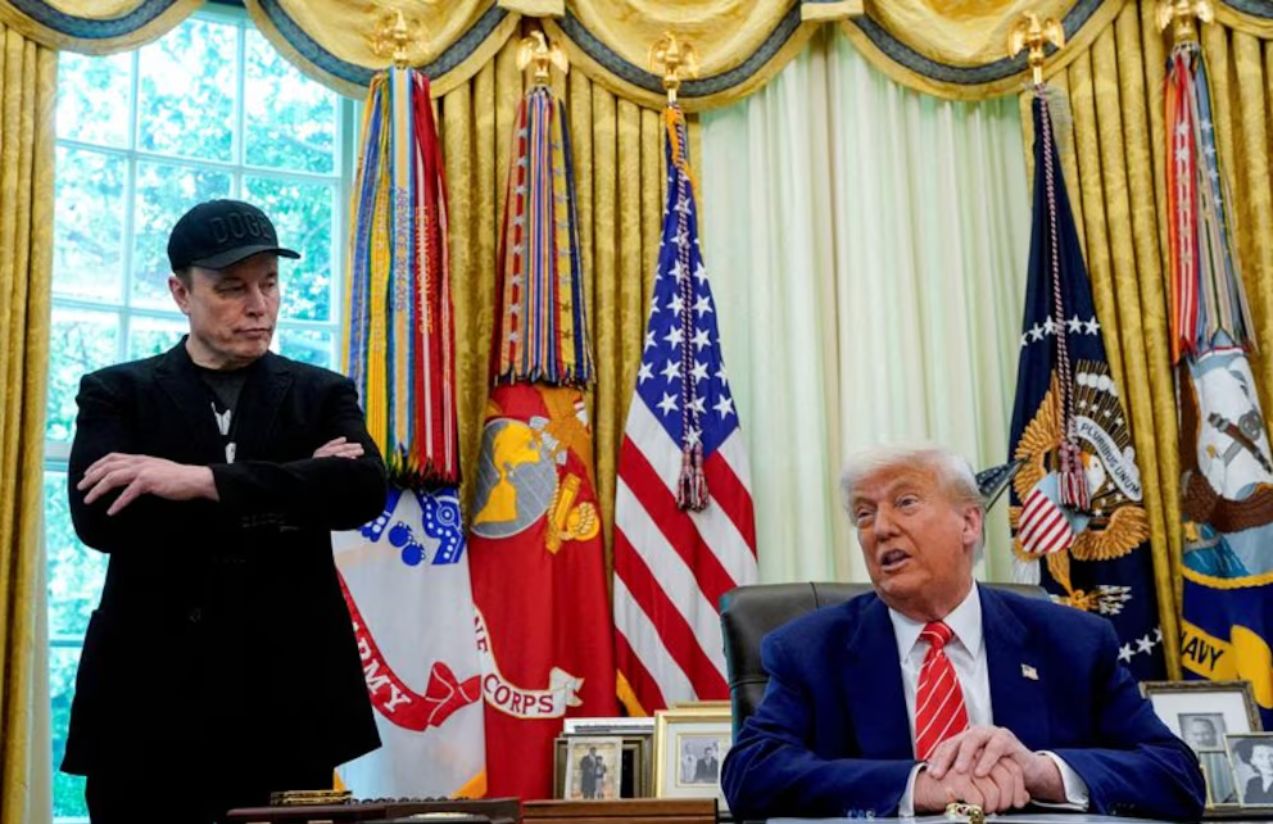U.S. President Donald Trump launched a fresh verbal attack on South African-born businessman Elon Musk on Tuesday, claiming that without federal subsidies, “he’d probably have to shut down and go back to South Africa.” The statement, posted on Trump’s social media platform Truth Social, triggered a nearly 7% drop in Tesla’s stock.
Trump—who once counted Musk as an ally, campaign donor, and informal advisor—centered his criticism on the tech mogul’s opposition to a new budget plan the White House hopes to pass by Friday. According to Musk, the proposal, which includes increased military spending and tax cuts, would significantly inflate the national debt.
“If the subsidies end, so do the rocket launches, the satellites, and the electric cars. Our country would save a fortune,” warned Trump, who reiterated his disapproval of the electric vehicle industry—one of the pillars of Musk’s business empire.
“Elon knew, even before he supported me so strongly, that I was completely against the EV mandate. It’s ridiculous, and it has always been a major part of my campaign. Electric vehicles are fine, but not everyone should be forced to drive one,” the president added.
Asked by reporters whether Musk could face deportation, Trump responded cryptically: “I don’t know. We’ll have to look into it. Maybe we’ll have to unleash DOGE on Elon. You know what DOGE is? DOGE is the monster that might have to come back and devour him.”
The verbal escalation came after Musk warned Republican lawmakers on Monday that they would “lose their primaries next year” if they supported Trump’s sweeping budget and tax-cut proposal. “Any member of Congress who campaigned on cutting government spending and then votes for the largest debt increase in history should be ashamed. And they will lose their primaries next year—even if it’s the last thing I do on this Earth,” Musk wrote.
The U.S. Senate is currently debating amendments to the bill, which contains several key elements of Trump’s agenda, including tax cuts, reductions in public spending, and increased funding for defense and border enforcement. However, it remains uncertain whether the plan will garner unanimous support from the 53 Republican senators.
Originally unveiled by Trump in May, the proposal calls for $163 billion in federal spending cuts for fiscal year 2026. According to the White House, the goal is to eliminate what Trump calls “woke,” “wasteful,” or “weaponized” programs used “against hardworking Americans,” while significantly boosting defense and national security budgets.
Described as an “ambitious plan” by House Speaker Mike Johnson, the initiative slashes non-defense discretionary spending by 22.6%, bringing it to its lowest level since 2017. At the same time, it increases funding for the Department of Defense and the Department of Homeland Security by 13% and 65%, respectively.
The plan does not touch mandatory spending programs such as Social Security or Medicare, instead focusing solely on discretionary spending, which currently totals $1.83 trillion. Under the new framework, that figure would be reduced to $1.69 trillion, according to the Office of Management and Budget (OMB), headed by Russell Vought.
Sectors most affected by the proposed cuts include environmental protection, health, education, and international aid. The U.S. Agency for International Development (USAID) would be dismantled, with its budget slashed by $49 billion. The Department of Education would lose $12 billion, and the Department of Health and Human Services would see a $33.3 billion reduction.
Funding would also be cut for scientific institutions like the National Institutes of Health (NIH) and the Centers for Disease Control and Prevention (CDC), as well as agencies such as the Internal Revenue Service (IRS) and the Federal Emergency Management Agency (FEMA)—all of which Trump has described as “politicized” or “weaponized against the people.”




















